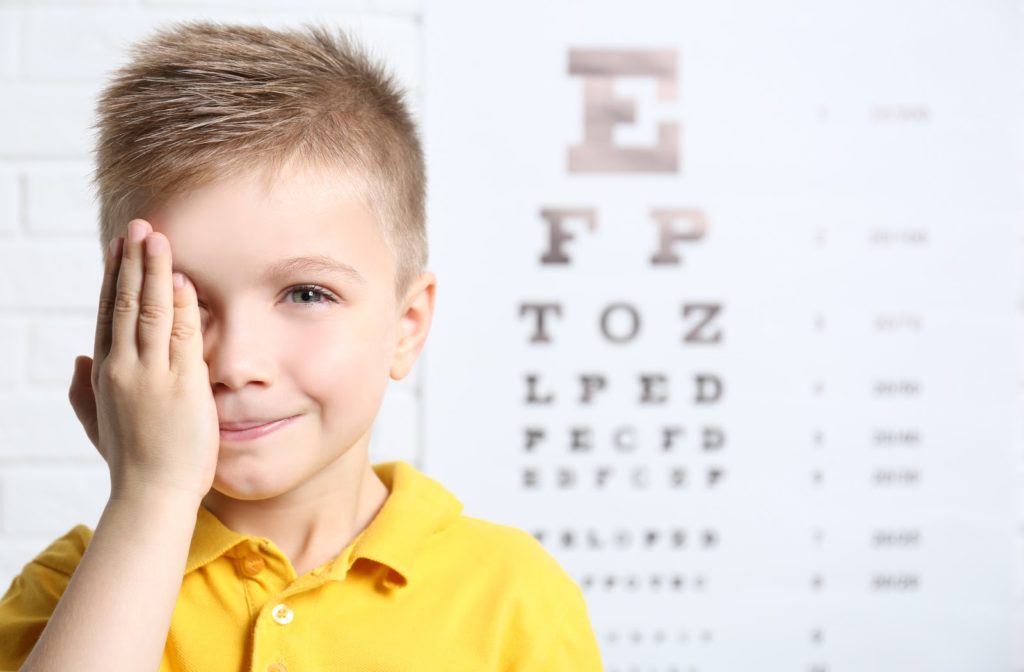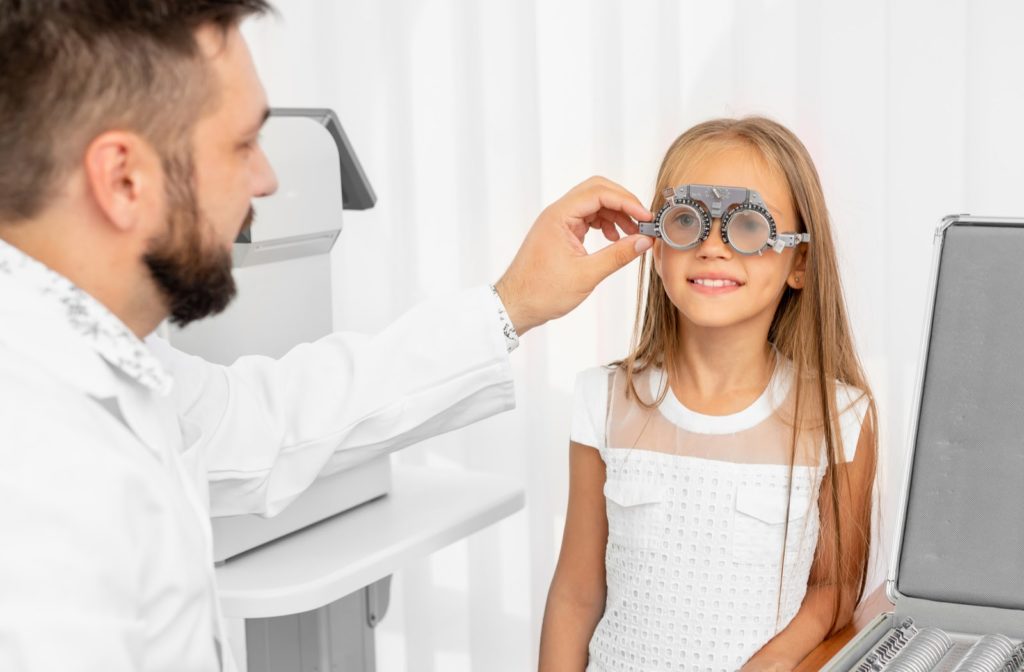Your optometrist does more than test your vision in an eye exam; they can identify several eye conditions and diseases. Children need regular eye exams as they develop and grow into adulthood.
How important are eye exams for children? Continue reading to learn more about the importance of children’s eye exams, including what happens during examinations and how often your child should have one.
What Happens During an Eye Exam?
Most people know what an eye exam is, but what happens during your child’s appointment? Depending on your child’s age, their examination may differ slightly. As children grow, their eyes develop with them.
There are many visual milestones your child will reach as they age. The tests your optometrist performs will depend on how far along your child’s development is. Children under a year old typically need an eye health evaluation to see their blinking and pupil response and overall eye health.
As a child grows, tests become more in-depth. Several common vision problems can develop between ages 2 to 5, known as preschool vision. After your child begins to read, write, and go to school, they likely require a comprehensive eye exam to assess their vision and eye health.
Your child’s eye exam will likely include:
Medical History
Your optometrist must review your child’s medical history, including birth, health conditions, and developmental milestones. You will likely discuss how your child is doing in school or other activities and if they’re struggling with their vision.
Visual Acuity
Visual acuity evaluates how well your child sees through each eye. If your child is old enough to understand, they’ll use a reading chart to determine their visual acuity. 20/20 vision is known as standard.
Refraction
At age 3, children need a refraction test to determine if they need corrective lenses. This test can diagnose several conditions, such as:
Your child will look through a series of different lenses and choose the ones providing the clearest image.
Eye Coordination
Eye coordination includes your child’s eye focusing, teaming, and movement. Children’s eyes must move, change focus, and work together to create a clear image.
Your optometrist will assess how well your child’s eyes focus, move and work together. This assessment includes testing their accommodation, ocular motility (the movement and alignment of the eyes), and binocular vision.
Eye Health Evaluation
A variety of technologies can help your optometrist examine your child’s eye health. They will look at all of the structures of the eye and surrounding tissue. Your eye doctor will measure your child’s eye pressure and identify any potential problems.
Some common tests include:
Your optometrist will perform more tests if necessary. A comprehensive eye exam looks at all aspects of your child’s vision and eye health. Why is this examination important for children?

The Importance of Children’s Eye Exams
Children’s eyes are constantly growing and developing as they age. With this development, there are risks of eye conditions and visual problems occurring. Regularly scheduled eye exams can help protect your child’s ocular health.
There are two main reasons eye exams are important:
Clear Vision is Crucial for Development
Approximately 80% of learning is visual for children. In school, your child needs to read, write, play, and interact with others. Vision is vital for all of these tasks.
As your child grows, they’ll learn many visual skills needed for everyday tasks. An undiagnosed refractive error or eye condition can affect a child’s school performance, normal development, social interactions, and self-esteem.
Early Detection Can Protect Your Child’s Vision
An estimated 20% of preschool children have a vision problem, and 25% of school-age children need corrective lenses. Vision problems can occur at any age, but many develop in childhood. If a child has a vision problem, it can affect their ocular health.
Eye and vision problems worsen over time, so early diagnosis is critical to protect your child’s eye health and vision. Some conditions, such as myopia, can lead to health risks in adulthood. Regular eye exams allow your optometrist to identify any potential eye diseases and create a treatment plan if they notice any problems.
Everyone needs regular eye exams, especially children. As your child grows older, when should you be taking them for an examination?
When Should Your Child Have an Eye Exam?
Eye exams are important for your child’s ocular health. The tests your optometrist performs can help identify visual problems and changes. Children have several visual milestones as they develop, so when should your child have an eye exam?
According to the American Academy of Ophthalmology, children should receive an eye examination at:
- 6 to 12 months
- 12 to 36 months
- 3 to 5 years
- Annually after 5 years
While you should follow this schedule, visit your optometrist if your child has any problems with their eyes or vision. The earlier they diagnose an issue, the sooner your child can receive treatment.
Protect Your Child’s Vision
Eye exams are vital for your child’s eye health and vision. With regularly scheduled appointments, your optometrist can identify any visual problems or changes. Book an appointment if your child needs a comprehensive eye exam or shows signs of any vision-related issues.




